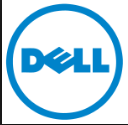When one hears the word ‘brand’ the first thought that comes to mind is established businesses with lots of money to spend on creating and advertising brand names such as Guess, Billabong, Nike and Apple.
Although these are now indeed popular and valuable brand names with established trade mark rights, these businesses all started small and certainly did not become empires overnight. What these businesses did however realise, was that much value lies in the brand that distinguishes them from their competitors and which is synonymous with quality.
The key function of a trade mark/brand is to act as a badge of origin – it serves to identify your products and services and distinguish them from the same or similar products in the market place.
The competitive advantages
An established trade mark can be a valuable asset to a business and can create additional branching business opportunities through licensing or franchising of your business and its name, for instance the MCDONALD’S trade marks. Unfortunately, many entrepreneurs are not yet aware of the competitive advantages offered by registered trade marks.
A trade mark can be in any form, provided it is distinctive and capable of being represented graphically. A few examples of trade marks include:
- business or brand names such as
- logo’s
- slogans
- container or shape trade marks such as a Kit Kat bar.
The starting point in creating or adopting a lasting trade mark is to make sure that your proposed trade mark is inherently distinctive or has acquired distinctiveness through use of the mark in the market place.
For instance, the word or visual representation of the word APPLE in respect of computers; computer software and hardware would be inherently distinctive in respect of these goods as the word APPLE is not commonly used in this particular industry.
This proprietor would, upon registration of this trade mark, be able to use the trade mark exclusively in respect of its goods and he would be able to prevent third parties from using or creating confusingly similar trade marks in respect of the same or similar goods.
The reality of trade marks
On the other hand, the word or visual representation of the word APPLE would be too descriptive for the use and registration as a trade mark in respect of goods consisting of apples or apple farmers. Such applicant would not be able to claim exclusive use of the word APPLE or monopolise the word APPLE, as the word is necessary in this industry and registration would unduly limit the use of the word in respect of these goods and services.
Secondly, it is important to register your trade mark. Although unregistered trade marks would acquire common law protection, the benefit of a registered trade mark is that the registration would serve as prima facie proof of a valid trade mark.
A proprietor of an unregistered trade mark would have to prove its title in and validity of the mark, whereas the validity of a registered trade mark would have to be refuted. Furthermore, the proprietor of a registered trade mark can rely on the provisions of the Trade Marks Act to protect the use and registration of its trade marks, whereas the proprietor of an unregistered trade mark cannot.
Thirdly, it’s important to correctly classify the trade mark. South Africa is currently compliant with the 10th Edition of the International Nice Classification of Goods and Services. These classification guidelines consist of 34 classes categorising goods and 11 classes relating to services.
The correct classification of goods and services is extremely important to ensure the validity of your trade mark and to be able to enforce your trade mark against third parties using an identical or similar mark in relation to the same or similar goods covered by your registration.
Protect your brand
Although there are initial costs to be incurred when filing a trade mark and it takes effort to protect and enforce your trade mark against third parties, when weighed against the potential economic growth of your business and the value the asset could create, it is no doubt a long term investment worth considering.











